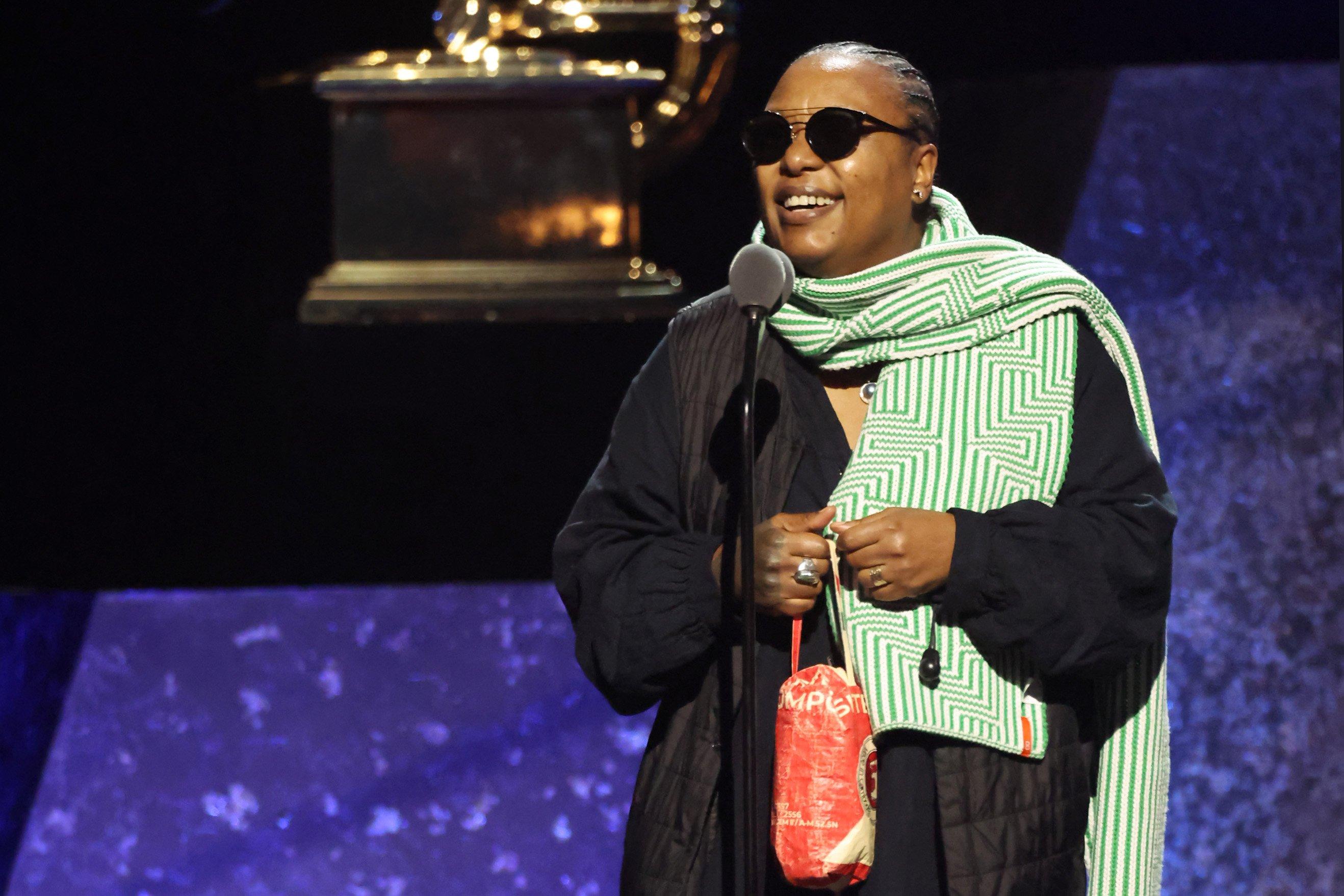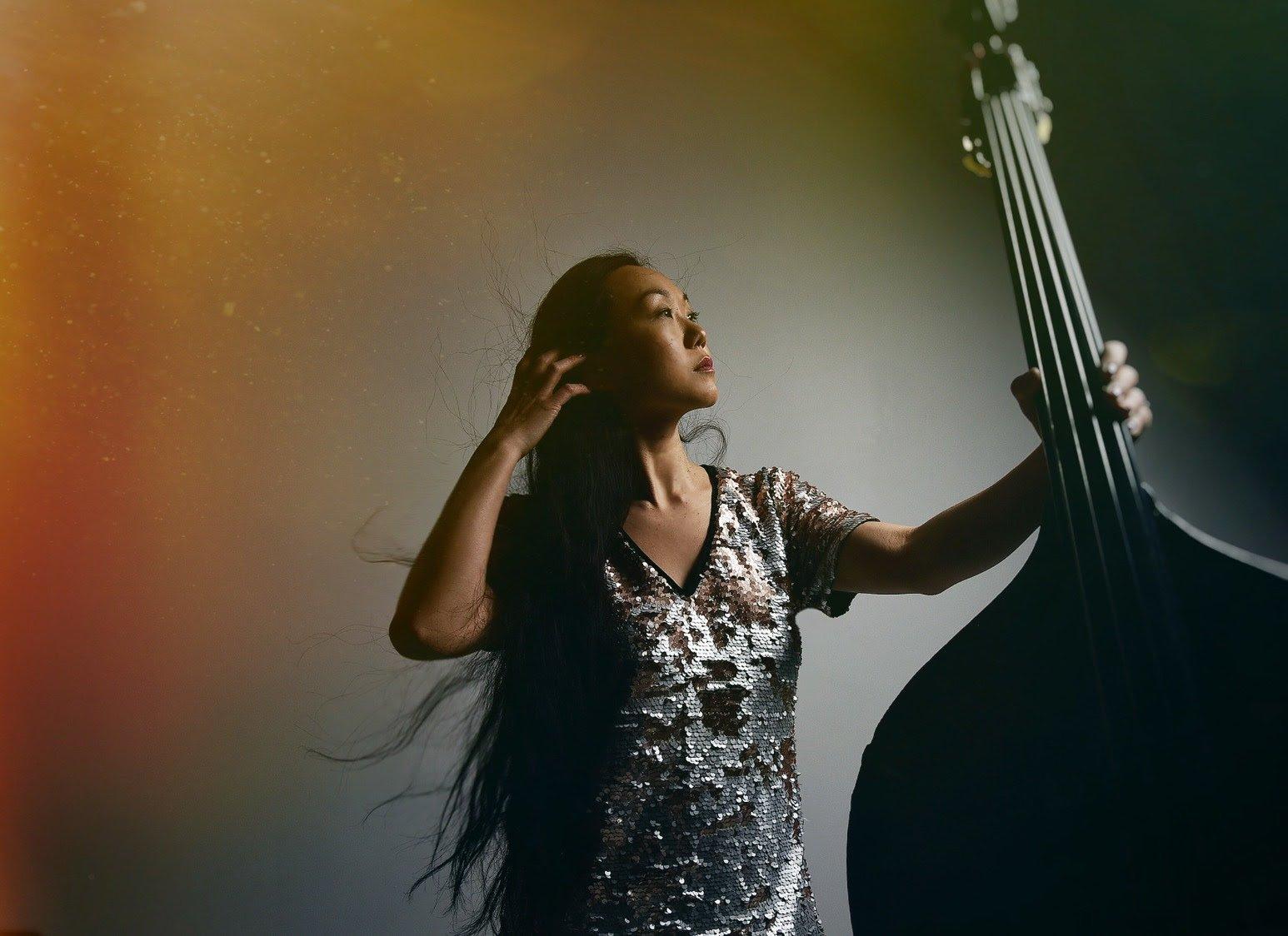Steven Feifke has to jump out to teach a class, so one Zoom interview becomes two. When the 29-year-old pianist and bandleader returns onscreen, he looks genuinely astonished.
"This kid is a prodigy," he reports, "She's 15 years old, a trumpet player writing this incredible big-band music. She's one of my most talented and driven students. I've never heard or seen something like this before. That's an interesting thing, the passing-of-the-torch kind of vibe." Later, Feifke says, he'll Zoom with his old teacher, Jim McNeely, likening their summits to a yearly physical—not by a doctor to a patient, but from one big-band composer to another.
Big band. What do the words connote? If you're Feifke's age or close to it, chances are your parents watched an old-school bandleader like Count Basie on a black-and-white TV. And the narrative constructed by everyone from the Lincoln Center to Ken Burns' Jazz, has always been that big band faded away in the 1940s, and small-group, improvisational artists like Charlie Parker replaced it. But large-ensemble jazz never went away—and many of the form's most compelling voices are in the ballpark of Feifke's age.
Six of those relative youngsters are Etienne Charles, Miho Hazama, Anna Webber, Jihye Lee, Steven Feifke and Charlie Rosen. While they're all links in the chain of tradition, they sound radically different from each other. Some of them, like Feifke, make swinging music comparable to the canonical greats. Others, like Webber, make otherworldly, uncategorizable sounds. Lee freely admits her music hardly swings at all—which, to some devout scenesters, is tantamount to blasphemy.
Lee is fine with being told she's not "jazz" enough. But if we are to take to heart Wayne Shorter's famous "Jazz means 'I dare you'" dictum, then these six are quintessential jazz musicians. If you picture big-band leaders as a homogenous bunch of senior citizens reanimating the past, one listen to any of these composers should put that caricature to bed. They are women and men; Black, Asian and white; and often the products of wildly divergent schools of thought.
Outstanding big band jazz doesn't just still exist; even after 13 largely gig-free months, the form is gaining momentum at a frightening speed. Here are six luminaries leading the charge in the 21st century.
A Trinidadian Steeped In Many Heritages: Etienne Charles
Etienne Charles. Photo: Jason Henry
Is big-band jazz just treacly old standards with an audience of grandparents? Etienne Charles finds the notion not just risible, but provably false.
"When you listen to Chairman of the Board, that's all original music," the 37-year-old trumpeter and bandleader tells GRAMMY.com of the Count Basie Orchestra's epochal 1959 album. "There are no standards on that record, and everybody in the band was young. Like, under 25."
The prodigious Charles, who was born in Trinidad, has a profound understanding of New Orleans trumpet tradition. "It's a great tradition," he says. "It's deep in rhythm. It's about a dancing rhythm. It's about playing in a way that makes people want to bounce."
<style>.embed-container { position: relative; padding-bottom: 56.25%; height: 0; overflow: hidden; max-width: 100%; } .embed-container iframe, .embed-container object, .embed-container embed { position: absolute; top: 0; left: 0; width: 100%; height: 100%; }</style><div class='embed-container'><iframe src='https://www.youtube.com/embed//nwn32TLJ1PI' frameborder='0' allowfullscreen></iframe></div>
Despite his yearslong presence in large-ensemble music, this is the first interview Charles has ever given about his writing in that field. "Everybody's like, 'Oh, you have a big band? Nice.'" he deadpans. But don't sleep on that side of his work: Charles' big band contains first-call players like alto saxophonist Immanuel Wilkins, tenor saxophonist John Ellis and vibraphonist Joel Ross.
Charles has his debut big-band album ready to go when the pandemic subsides. While you wait, investigate his latest record, 2019's Carnival: The Sound of a People, Vol. 1, and behold his command of a confluence of Caribbean styles.
"For me, the Caribbean is one big region. It's one big place to me," he says. "So, when I swipe a nyabinghi rhythm from Jamaica, when I use the Belair from Martinique, when I use the gwo ka from Guadaloupe, when I cite the twobadou or the macaron from Haiti or a ballad style from French Guiana or Venezuelan merengue—all those people are me. I have roots all over the Caribbean, so I see it all as fair game."
An Aural Painter Of Dazzling Colors: Miho Hazama
Miho Hazama. Photo: Agnete Schlichtkrull
One important thing to understand about big-band is that it's a format, not a genre. While it may have connoted the latter in the mid-20th century, the large ensemble is now a palette for any style you can think of. When it comes to Miho Hazama, "palette" can be more literally defined.
"I have so many colors in my palette in my brain," she tells GRAMMY.com over Zoom from Japan. "Sometimes, it's gold, a really sparkling color. Sometimes it's neon. Sometimes it's really flashy or it's really dark. I always consult with myself how many colors I would like to use, or how colorful this music can be. It's like a collaboration with your favorite painter."
<style>.embed-container { position: relative; padding-bottom: 56.25%; height: 0; overflow: hidden; max-width: 100%; } .embed-container iframe, .embed-container object, .embed-container embed { position: absolute; top: 0; left: 0; width: 100%; height: 100%; }</style><div class='embed-container'><iframe src='https://www.youtube.com/embed/3SeC5C90lAc' frameborder='0' allowfullscreen></iframe></div>
That internal collaboration results in music with a tangible sense of surprise. Her latest album, 2018's Dancer in Nowhere, is vigorous and vibrant, keeping the listener on their toes from the first minute to the last. (To say nothing of excellent albums from deeper in her catalog, like 2015's Time River.)
These attributes partly derive from Hazama's needle-sharp ensemble, m_unit, which she calls her "castle" and "playground." "I do whatever I want," she says. "Nobody controls me in that orchestra. I think [the music] is just coming naturally from my interest."
Overall, if you're interested in the nexus of jazz and classical, seek out Hazama immediately. While she views "jazz" as the most helpful tag, for now, expect her to break out of that category in the future. "That's something where I want to place my label at this point," she says. "But in the end, I love to say I'm a composer and arranger without any genre."
A Crafter Of Mazes & Volatile Microtones: Anna Webber
Anna Webber. Photo: Cisco Bradley
Anna Webber's upcoming album, 2021's Idiom, might be her most visionary and startling work to date. What might be accidental sounds to another artist are presented in the center of the sound-field. Strange melodies become lodged in mid-air, causing the entire arrangement to violently boil over.
How does Webber explain this uncanny music? With something of a shrug. "All of the Idiom compositions are basically me trying to make sense of some of my improvisational language," the saxophonist/flutist explains from Berlin over Zoom. "Finding really specific things I do while improvising, isolating those and then forming a piece out of them."
<style>.embed-container { position: relative; padding-bottom: 56.25%; height: 0; overflow: hidden; max-width: 100%; } .embed-container iframe, .embed-container object, .embed-container embed { position: absolute; top: 0; left: 0; width: 100%; height: 100%; }</style><div class='embed-container'><iframe src='https://www.youtube.com/embed//-dIwX9n7B3A' frameborder='0' allowfullscreen></iframe></div>
One's ear might pick up surreal harmonies on Idiom, which splits the difference between a trio and a large ensemble. But that's less due to the notes on the page than Webber analyzing the physicality of her instruments. That way, she leverages specific microtones and resonances to compositional ends.
Webber co-leads the Webber-Morris Big Band with Angela Morris and performs in trios, quartets and various other configurations. In short, she lives and works in the now. "There are still people whose entire professional career is playing standards," she notes. "There's nothing wrong with that, but there's also music that's being created now, for this moment in history."
"I just feel like we're not living in the '40s, '50s, '70s or '90s," Webber continues. "We're living now, so I want to write the music that makes sense to me at this particular moment in history and not try to replicate something from the past."
An Idiosyncratic, Personal & Intrepid Storyteller: Jihye Lee
Jihye Lee. Photo: Hyemi Kim
There's a reason Shorter's famous "I dare you" quote comes up. Those three words galvanized Jihye Lee. As evidenced by track titles like "Relentless Mind," "Unshakeable Mind," and "Struggle Gives You Strength," the composer's new album, 2021's Daring Mind, is all about personal transformation from within.
This theme stems directly from Lee's firsthand experiences. Born in Korea, she moved to America in her twenties without ever having visited before, with no knowledge of the English language. After enrolling at Berklee College of Music, "I didn't know if I should be a classical composer or a film-score composer or a singer/songwriter," Lee told JazzTimes in 2021. "I was so afraid and overwhelmed."
<style>.embed-container { position: relative; padding-bottom: 56.25%; height: 0; overflow: hidden; max-width: 100%; } .embed-container iframe, .embed-container object, .embed-container embed { position: absolute; top: 0; left: 0; width: 100%; height: 100%; }</style><div class='embed-container'><iframe src='https://www.youtube.com/embed//R0RHk_vPSNA' frameborder='0' allowfullscreen></iframe></div>
Why did she end up going for big-band music? "I was overwhelmed by the sound and energy when I first saw the jazz orchestra in front of me," she tells GRAMMY.com. "I didn't plan to like it, but the music happened in front of me and I fell in love with that."
Lee's music is luminous and personal, despite it not resembling traditional big-band jazz. This has led to some consternation from purists. "Some older generations, in their scope, say "Oh, you should be in this box. This box where I know jazz is,'" she says. "But I still demand I'm a jazz composer because I really think jazz is a daring spirit. In that sense, I'm a jazz composer."
In the end, Lee wants her work taken on its own terms, both in terms of format ("The symphony can be jazz; the orchestra can be rock") and who she is. "I'm Asian. I'm Korean. I'm a woman. But I don't want to be categorized by sex or ethnicity," she says. "I don't want you to see my music with any kind of background. Just hear the music."
A Swinging Traditionalist & Sower Of Rapport: Steven Feifke
Steven Feifke. Photo: Chris Lee
While the previous four composers either weave between genres or disregard them entirely, Feifke proudly wears his primary influences on his sleeve: Thad Jones and Bob Brookmeyer. "I'm certainly inspired by both of those people very deeply," he says. "I also love Maria Schneider and Jim McNeely and all those cats."
Steven Feifke Big Band's new album, 2021's Kinetic, is his first as a leader. "It's a working big band," he stresses. "It's not a studio big band that only comes together to record." That means the ensemble includes close friends and colleagues of his, like the trumpeter and vocalist Benny Benack, who plays a killing horn and does a mean Frank Sinatra to boot.
<style>.embed-container { position: relative; padding-bottom: 56.25%; height: 0; overflow: hidden; max-width: 100%; } .embed-container iframe, .embed-container object, .embed-container embed { position: absolute; top: 0; left: 0; width: 100%; height: 100%; }</style><div class='embed-container'><iframe src='https://www.youtube.com/embed//RAMJAs2uw9A' frameborder='0' allowfullscreen></iframe></div>
And while the pandemic means the ensemble hasn't been able to perform its monthly residency in New York, "It's something I'm eternally grateful, that I got that opportunity to spend with my band in performance," he says. "I think that's the sound that's captured on my record," he continues. "The energy of a live performance with the polish of a studio album."
When asked how he would define his voice as a bandleader, "I'm not sure it's up to me to define," Feifke replies. " "I hope my music has an intimate feel, allowing the members of the band's individual personalities to shine and fitting that into the large-ensemble textural plane."
What's the result of this holistic approach? "For every performance, every song, the focus isn't on the ensemble or me or any individual member, but rather on the music itself."
A Transmuter Of Songbooks & Player Of Games: Charlie Rosen
Charlie Rosen. Photo: Mehdi Hassine
As the last five composers have established, big band is not necessarily a genre, but a vessel in which to pour any kind of music. By way of the 8-Bit Big Band, a jazz/pops orchestra that performs video game music, Charlie Rosen is actively testing this hypothesis.
"I wanted to [form] the big band that reinterprets video-game music in the same way the great 20th-century jazz arrangers reinterpreted the Great American Songbook," Rosen told JazzTimes in 2021. On their latest album, 2020's Backwards Compatible, he has top-shelf musicians to help him execute this vision, like Feifke, Benack, saxophonist Grace Kelly and bassist Adam Neely.
Rosen comes from a musical theater background and, as such, makes every decision in order to "dramaturgically support" the content of the music. "What arrangers and orchestrators do is hear the potential in pieces of music and expand them by using their palette of available sounds," he says.
For the 8-Bit Big Band, these could be selections from Super Mario Odyssey, Sonic the Hedgehog or other AAA titles. Catch them whenever concerts happen again, and you'll hear traditional instruments blended with whirling sequencers, with the game in question projected overhead.
<style>.embed-container { position: relative; padding-bottom: 56.25%; height: 0; overflow: hidden; max-width: 100%; } .embed-container iframe, .embed-container object, .embed-container embed { position: absolute; top: 0; left: 0; width: 100%; height: 100%; }</style><div class='embed-container'><iframe src='https://www.youtube.com/embed//q_NbeowU_9s' frameborder='0' allowfullscreen></iframe></div>
Rosen has courted an audience of rabid gamers who might not otherwise have given big-band music a chance. What can it communicate to the uninitiated? "It doesn't matter if you have any musical training whatsoever. I think human beings have an innate ability to recognize when something is being done well."
And all it takes to get it, he says, is to stand in front of a big band at full tilt. That's what happened to Rosen as a child; that's what hooked him for life. "The power of a horn section was the thing that made me be like, 'This is awesome. This feels so good and so epic,'" he recalls with a hint of awe. "Being surrounded by that much moving air."
Inescapable Progression: 10 Jazz Labels You Need To Know In 2021










